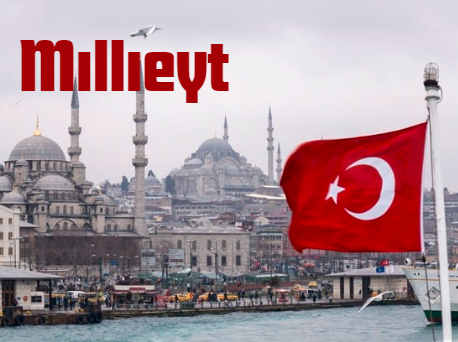Introduction
In a world increasingly defined by global interactions and multiculturalism, the concept of national identity remains a powerful force shaping societies and individuals alike. One such term encapsulating this notion is “mıllıeyt.”
This Turkish word goes beyond the simple definition of nationality; it encompasses the shared cultural, historical, and social characteristics that bind a particular ethnic or national group together. This comprehensive article explores the multifaceted nature of mıllıeyt, its implications, and its relevance in the modern world.
What is Mıllıeyt?
Defining Mıllıeyt
Mıllıeyt (pronounced “mee-lee-et”) is a Turkish term that translates to “national identity” or “nationality.” Unlike the English equivalents, which often focus solely on legal status or citizenship, mıllıeyt conveys a deeper sense of belonging and cultural unity. It reflects the collective identity of a group, rooted in shared traditions, history, language, and values.
Historical Context of Mıllıeyt
The concept of mıllıeyt has deep historical roots in Turkey and the broader region. It emerged as a significant term during the late Ottoman Empire and early Republican period, particularly in the context of nation-building and the establishment of a unified Turkish identity. Understanding its historical evolution helps in appreciating its current significance.
Mıllıeyt in Modern Turkey
In contemporary Turkey, mıllıeyt continues to play a crucial role. It influences political discourse, social dynamics, and even personal identities. The term is often invoked in discussions about national unity, cultural preservation, and the relationship between different ethnic and social groups within Turkey.
The Cultural Dimensions of Mıllıeyt
Language and Mıllıeyt
Language is a fundamental aspect of mıllıeyt. Turkish, as the official language, serves as a primary marker of national identity. The promotion and preservation of the Turkish language have been central to the concept of mıllıeyt, particularly in the face of globalization and linguistic diversity.
Traditions and Customs
Cultural traditions and customs form another core component of mıllıeyt. These include holidays, culinary practices, music, dance, and other cultural expressions unique to the Turkish people. Such traditions reinforce a sense of belonging and continuity within the national identity.
Religion and National Identity
Religion, particularly Islam, has historically been intertwined with Turkish national identity. While Turkey is a secular state, the majority Muslim population has shaped many aspects of cultural and social life, contributing to the collective sense of mıllıeyt.
The Historical Evolution of Mıllıeyt
The Ottoman Empire and the Birth of National Identity
During the Ottoman Empire, the concept of nationality was not as pronounced as it is today. The empire was a multi-ethnic, multi-religious entity where identity was often linked to religious affiliation rather than nationality. The rise of nationalism in the 19th century, influenced by European ideas, began to change this, setting the stage for the modern understanding of mıllıeyt.
The Role of the Republic of Turkey
The establishment of the Republic of Turkey in 1923 marked a significant shift in the concept of mıllıeyt. Mustafa Kemal Atatürk, the founding father of modern Turkey, implemented extensive reforms to foster a unified national identity. These reforms included the adoption of the Latin alphabet, the promotion of Turkish language and culture, and the secularization of the state.
Mıllıeyt in the 20th and 21st Centuries
Throughout the 20th century, the concept of mıllıeyt continued to evolve, influenced by various political, social, and economic changes. In the 21st century, globalization and the increasing presence of diverse ethnic groups within Turkey have further complicated the notion of national identity, leading to ongoing debates and discussions about the true meaning of mıllıeyt.
Mıllıeyt and Nationalism
Understanding Turkish Nationalism
Nationalism is closely related to mıllıeyt. Turkish nationalism, in particular, has been a driving force in shaping national identity. It emphasizes the unity and superiority of the Turkish nation, often in contrast to external influences and internal diversity.
The Role of Education in Shaping Mıllıeyt
Education has been a critical tool in promoting mıllıeyt. The Turkish education system emphasizes national history, language, and values, aiming to instill a sense of pride and belonging in young citizens. Textbooks and curricula are designed to reflect the ideals of mıllıeyt, ensuring that each generation carries forward the national identity.
Political Implications of Mıllıeyt
Mıllıeyt has significant political implications. It is often used to garner support for policies and political movements that emphasize national unity and cultural preservation. Political parties and leaders invoke mıllıeyt to strengthen their connection with the electorate and promote their vision of the nation’s future.
Mıllıeyt in a Globalized World
The Impact of Globalization on National Identity
Globalization poses both challenges and opportunities for mıllıeyt. On one hand, it brings diverse cultures and ideas into closer contact, potentially diluting national identities. On the other hand, it offers opportunities to promote and preserve unique cultural identities on a global stage.
Mıllıeyt and Multiculturalism
Turkey’s population includes various ethnic and cultural groups, such as Kurds, Armenians, Greeks, and others. Balancing the concept of mıllıeyt with the realities of multiculturalism is a complex task. It requires acknowledging and respecting diversity while maintaining a cohesive national identity.
The Role of Media and Technology
Media and technology play a significant role in shaping modern mıllıeyt. Social media, in particular, allows for the rapid dissemination of cultural and nationalistic content, influencing public perceptions and attitudes. It also provides a platform for discussing and debating the meaning of national identity in the digital age.
Challenges and Controversies Surrounding Mıllıeyt
Ethnic and Cultural Diversity
One of the main challenges to mıllıeyt is the presence of diverse ethnic and cultural groups within Turkey. Balancing the promotion of a unified national identity with the recognition of this diversity is a delicate and often contentious issue.
Political Polarization
Political polarization in Turkey has also affected the concept of mıllıeyt. Different political factions interpret and use the term to serve their agendas, leading to conflicting visions of national identity.
Secularism vs. Religious Identity
The tension between secularism and religious identity is another significant challenge. While mıllıeyt traditionally encompasses a secular national identity, the role of Islam in Turkish society complicates this, leading to debates about the place of religion in defining national identity.
The Future of Mıllıeyt
Trends in National Identity
The future of mıllıeyt will likely be shaped by ongoing trends in national and global identity. These include increased mobility, the influence of digital cultures, and evolving political landscapes. Understanding these trends is crucial for predicting how mıllıeyt will evolve.
Policy Implications
Government policies will play a crucial role in shaping the future of mıllıeyt. Policies promoting inclusive education, cultural preservation, and social cohesion will be essential in fostering a strong and unified national identity.
Mıllıeyt in the Diaspora
The Turkish diaspora also influences the concept of mıllıeyt. Turks living abroad maintain their national identity while adapting to new cultural environments. Their experiences and contributions add another layer to the understanding of mıllıeyt.
Frequently Asked Questions about Mıllıeyt
What does mıllıeyt mean?
Mıllıeyt is a Turkish term that refers to national identity or nationality, encompassing shared cultural, historical, and social characteristics.
How does mıllıeyt differ from nationality?
While nationality often refers to legal status or citizenship, mıllıeyt conveys a deeper sense of belonging and cultural unity, reflecting the collective identity of a group.
Why is mıllıeyt important in Turkey?
Mıllıeyt is important in Turkey because it promotes national unity and cultural preservation, playing a significant role in political discourse, social dynamics, and personal identities.
How has mıllıeyt evolved over time?
Mıllıeyt has evolved from the Ottoman period through the establishment of the Republic of Turkey and into the modern era, influenced by various political, social, and economic changes.
What challenges does mıllıeyt face today?
Challenges to mıllıeyt include balancing ethnic and cultural diversity, political polarization, and the tension between secularism and religious identity.
Conclusion
Mıllıeyt is a complex and multifaceted concept that goes beyond the simple notion of nationality. It embodies the cultural, historical, and social characteristics that define a group, creating a sense of unity and belonging.
Understanding mıllıeyt requires delving into its historical roots, cultural dimensions, and contemporary implications. As the world continues to change, the concept of mıllıeyt will undoubtedly evolve, reflecting the dynamic nature of national identity.



